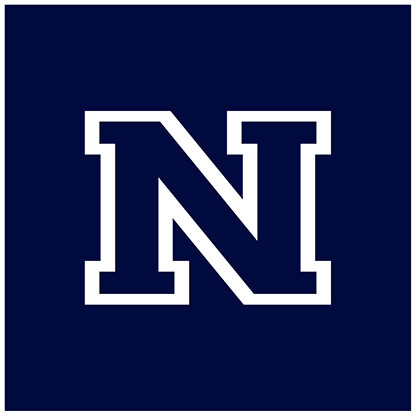Challenge
Chris Jeffrey’s research lab used various data management methods, from paper notebooks to cloud storage solutions. However, it was difficult to centralize all relevant data, track project progress, and reference old experiments when team members left the group. They tested other electronic lab notebooks, but they proved too cumbersome to get the whole team on board.
Solution
Chris Jeffrey’s group replaced paper notebooks with Colabra’s GxP-compliant R&D software. Research team members immediately grew fond of having real-time conversations around their experiments. They started naturally adopting better project and data management practices thanks to Colabra’s intuitive user experience.

Chris Jeffrey, Associate Professor in the Chemistry Department at the University of Nevada, Reno, runs a group focused on understanding the chemistry of biological interactions, from large ecosystems to individual organisms.
The group uses tools from organic chemistry to study these complex systems. Some examples of their projects include studying the diversification of tropical rainforests along the equator, the origins of early Earth organisms and their ability to resist UV radiation, and how the chemistry and metabolism of organisms allowed them to survive, thrive, and evolve with the changing environmental conditions.
Historically, his group had a variety of data management practices, depending on the type of data being collected:
- Paper notebooks to record observations from the field
- Box cloud storage to store large, complex metabolomic data
- Email to request feedback and communicate with each other
However, this system made it difficult to search and reference experiments, especially when students left and the notebooks were not well-indexed. This made it challenging, particularly with longer-term projects, to summarize data and prepare it for publication or grant applications.
Every experiment is connected to other experiments within the context of a larger project. Team members have clear visibility into what needs to be done to move the research forward. This approach helps teams build momentum, increases confidence in their ability to hit milestones reliably, and improves overall team collaboration and coordination.
Finding the right tool for the job
The group tried using different electronic lab notebooks, as well as Slack and Teams, to collaborate and share information but found that these platforms weren’t useful for capturing all of the relevant data, following project progress, and tracking changes over time.
“We’d run an organic synthetic reaction and share whether it worked or did something unexpected, but a lot of the metadata wasn’t included in this output. Other tools didn’t have a place to capture these details,” says Chris.
The tools they tried were also cumbersome to learn for a team already overwhelmed with more pressing tasks.
When we tried other LIMS/ELNs, it felt like we needed a dedicated data management person. They were a nightmare to set up.
— Chris Jeffrey, Associate Professor, Chemistry Department
Chris knew that if they couldn't find a better way to manage their data, it would hold them back from making progress in their research. He wanted a flexible platform that could connect the group’s existing tools in one place while allowing them to build on their existing processes.
Moving workflows and conversations into Colabra
Unlike previous tools, the adoption of Colabra took no time. Unlike the other tools they've evaluated, the adoption of Colabra took no time at all. Its intuitive design made for a short learning curve, and Colabra's team was always there to help discover some of the more advanced features.
Everyone started using Colabra right away.
— Chris Jeffrey, Associate Professor, Chemistry Department
Colabra allowed the research group to replace paper notebooks with a GxP-compliant electronic lab notebook, introduce project management processes to the team, and share experiments and data with other researchers more easily. Colabra has enabled the group to streamline their data and project management and advance their research.
It’s now used for nearly everything. Colabra replaced our paper notebooks, making it much easier to search, reference, and index experiments. It also improved our project management with real-time comments and task assignments.
— Chris Jeffrey, Associate Professor, Chemistry Department
Driving research forward with real-time feedback loops
One of the key benefits of Colabra was the real-time mentorship feature. Chris found that he could make comments directly on experiments and see that his suggestions were being followed, which improved the efficiency of the research process.
If I had a question about an experiment, I’d have to wait for a meeting, which could take weeks due to other tasks and distractions. With Colabra, I can quickly survey the comments and ask about any issues, such as a decreasing yield or problems with reagents.
— Chris Jeffrey, Associate Professor, Chemistry Department
The summary feature within projects also proved valuable, allowing the team to create a written dialogue that linked experiments together. “In the past, it could be difficult to track experiments as they involved multiple steps and data sources, and it was easy for important information to get lost or miscommunicated.” This has made it easier for Chris to follow the progress of experiments and see how they fit into the overall research goals.
Making sure nothing falls through the cracks
In addition to improving real-time communication and mentorship, Colabra has been helpful by streamlining the process of reviewing experiments.
“I don't have to go through every experiment in detail, particularly if they are repeats or similar to previous experiments. Our research faculty member has started using Colabra to ask me to review data. In the past, I often received slide decks via email with requests to review a portion of their work, which was confusing and difficult to keep track of.
“By organizing these review requests as experiments in Colabra, our research professor can compile all the data collected over five or six datasets in one spot. If he decides to update the network analysis, he can make the changes in Colabra, and I can see the updated version with a clear timestamp, rather than having to search through emails or Teams or other platforms where the timestamp is less clear.”
A uniform, efficient way to manage projects is important in interdisciplinary fields like organic chemistry. I think all laboratory scientists should consider using Colabra.
— Chris Jeffrey, Associate Professor, Chemistry Department
Experience the benefits of digital transformation
Digital transformation in scientific organizations aims to improve decision-making and speed up product development.
Colabra makes R&D teams more engaged and efficient by:
- Increasing scientist productivity by streamlining tedious and time-consuming tasks
- Improving collaboration across teams and with external partners by providing access to data in one central location
- Enforcing data integrity by standardizing data generation and management within the platform
- Accelerating R&D insights by allowing leaders to view data from a bird’s-eye view, and quickly identify bottlenecks
- Reducing R&D costs by simplifying IT systems and eliminating integration and maintenance overhead
The scientific research industry is undergoing a significant shift, and the decisions made by each organization will shape their future for the next decade. Adopting a cohesive digital transformation strategy is essential.
Colabra offers a platform that is flexible, easy to configure, and supports new modalities for data collection, management, and analysis. It increases scientist productivity, improves collaboration, enforces data integrity, accelerates research insights, and reduces R&D costs.
If your organization is ready to take the next step towards digital transformation, Colabra offers a 1-month pilot program with guided onboarding for all new users. This includes 1:1 training sessions to fully utilize the Colabra platform and seminars to teach project management practices.
Our team of experts will work with you every step of the way, from implementation and onboarding to post-live support and education. We will take the time to understand your unique scientific needs and deliver on organizational goals post-implementation.
To learn more, schedule a personalized demo at [email protected].
